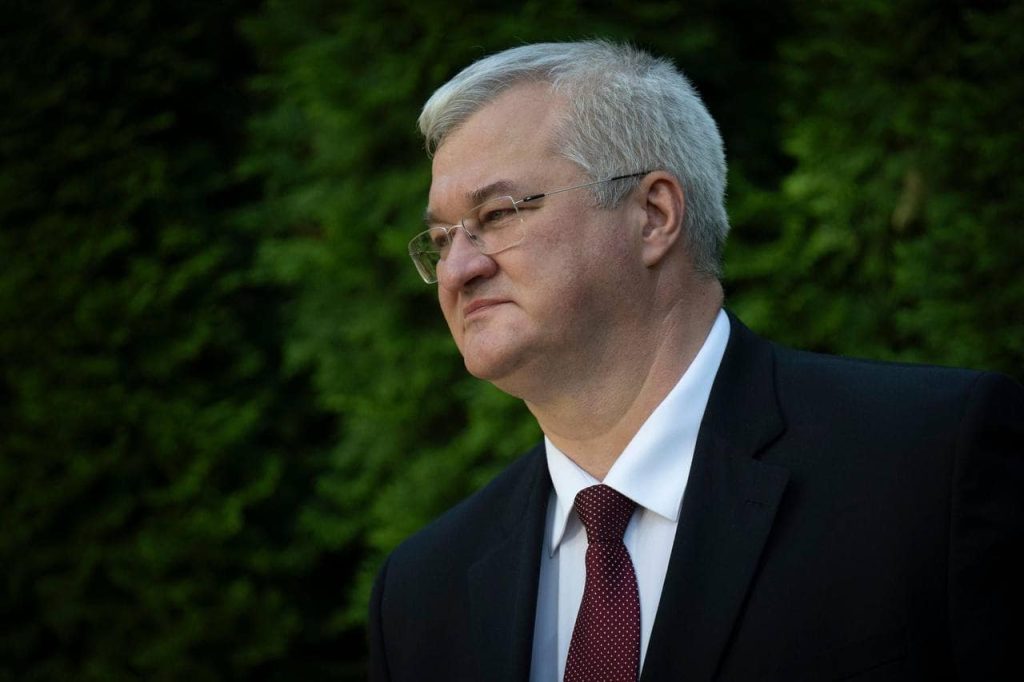The new Ukrainian Foreign Minister Andrii Sybiha traveled to Budapest to meet with his Hungarian counterpart Peter Szijjarto on September 30. The ministers engaged in one-on-one discussions to cover a range of topics, including the development of relations between the two countries, the implementation of joint projects, protection of the rights of national minorities, and Ukraine’s aspirations to join the EU and NATO. However, Hungary has previously opposed Ukraine’s accession to these international bodies, as well as sanctions on Russia, and has maintained close relations with Moscow during Ukraine’s conflict with Russia. Ukraine recently imposed sanctions that blocked a major Russian oil company from transiting crude oil through Ukrainian territory, affecting supplies to Hungary.
This visit marks Sybiha’s first trip to Hungary as foreign minister, following similar visits to Romania and Slovakia in recent weeks. Previous meetings between Ukrainian and Hungarian officials, including Sybiha’s predecessor Dmytro Kuleba and head of the Presidential Office Andrii Yermak, have taken place, culminating in Hungarian Prime Minister Viktor Orban’s visit to Kyiv. During talks with President Volodymyr Zelensky, Orban suggested a ceasefire as a step towards peace, which Zelensky dismissed as potentially aiding Russia in regrouping its forces. The relationship between Ukraine and Hungary is complex, with differing views on key issues such as Ukraine’s conflict with Russia and its aspirations to join Western organizations.
A top aide of Hungarian Prime Minister Orban caused outrage by criticizing Ukraine’s resistance to Russia’s full-scale invasion, labeling it as “irresponsible” and implying that Hungary would not have advised fighting back if consulted. Balazs Orban, who is not related to the prime minister, made controversial remarks that diverged from the stance of many Western countries in support of Ukraine’s defense against Russia. The comments reflect the delicate diplomatic relations between Hungary and Ukraine, as well as Hungary’s historical ties and current alignment with Russia. The differing perspectives on Ukraine’s response to Russian aggression highlight the complexities of the situation in Eastern Europe.
The discussions between Sybiha and Szijjarto are important for navigating the tensions and disagreements between Ukraine and Hungary, particularly regarding Ukraine’s conflict with Russia and its goals of joining the EU and NATO. Hungary’s opposition to Ukraine’s integration into Western institutions, as well as its close ties with Russia, present challenges for bilateral relations. The imposition of sanctions by Ukraine to disrupt Russian oil supplies to Hungary further underscores the frictions between the two countries. Sybiha’s diplomatic efforts to engage with Hungarian officials and discuss key issues demonstrate Ukraine’s commitment to dialogue and diplomacy in addressing regional conflicts and advancing its international interests.
As Sybiha embarks on his tour to engage with neighboring countries and key partners, including Hungary, Romania, and Slovakia, the focus remains on fostering dialogue, enhancing cooperation, and resolving differences. The visit to Budapest signifies Ukraine’s efforts to strengthen ties with Hungary and address sensitive issues that have strained relations in the past. The importance of communication and mutual understanding between Ukraine and Hungary, despite differing viewpoints on crucial matters, is highlighted through these diplomatic engagements. Both countries have shared interests in regional stability, security, and economic development, which can be best achieved through constructive dialogue and collaboration. The challenges and complexities of the relationship between Ukraine and Hungary require ongoing efforts to build trust and find common ground for cooperation and progress.















